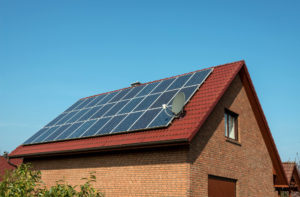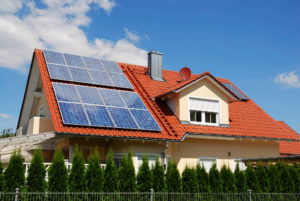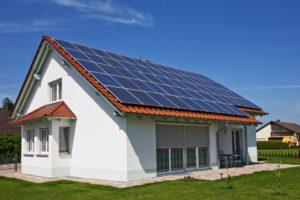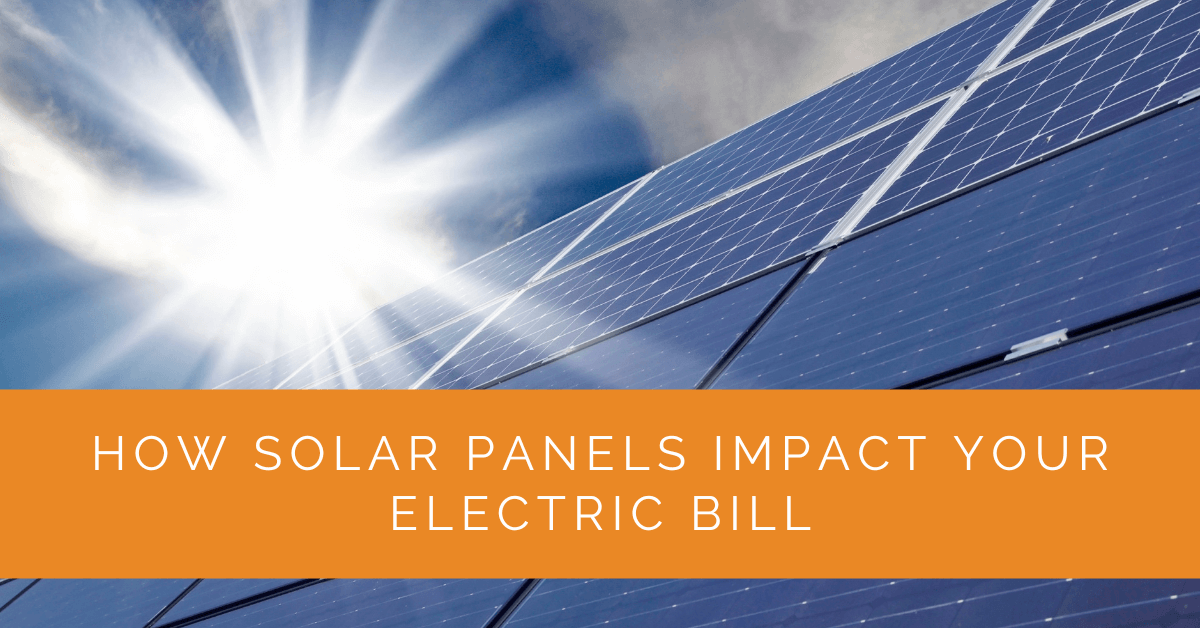Going solar not only helps the environment but also significantly impacts your electric bill. By harnessing the power of the sun, solar panels offer a sustainable and cost-effective solution for homeowners. This article will explore the relationship between solar panels and your electric bill, uncovering the potential savings and benefits of adopting solar energy.
Contents
- 1 Key Takeaways
- 2 Understanding Your Electric Bill Before Going Solar
- 3 The Benefits of Solar Panels
- 4 How Solar Panels Impact Your Electric Bill
- 5 Average Monthly Electric Bill with Solar Panels
- 6 Factors Affecting Your Electric Bill After Installing Solar
- 7 What Happens to Your Electric Bill if You Install Solar Panels
- 8 Eliminating Your Electric Bill with Solar Panels
- 9 Case Study: Solar Panels and Electric Bill Reduction
- 10 Expert Insights From Our Solar Panel Installers About How Solar Panels Impact Your Electric Bill
- 11 Experience Solar Excellence with Us!
- 12 Conclusion
Key Takeaways
- Solar panels significantly lower your electric bill by generating clean and renewable energy, reducing your reliance on the grid, and decreasing energy consumption.
- Factors such as energy usage, weather conditions, and changes in electricity rates can influence your electric bill after installing solar panels.
- While you may still have an electricity bill, solar panels can help offset your energy usage, potentially leading to zero or near-zero bills through net metering and battery storage systems.
Understanding Your Electric Bill Before Going Solar
To make an informed decision about going solar, it’s essential to understand the structure of your electric bill and the factors that contribute to its total amount. This knowledge will help you grasp how solar panels can impact your bill and result in significant savings.
Your electric bill comprises various components: energy usage, demand charges, fixed fees, and taxes. Energy usage, measured in kilowatt-hours (kWh), is the primary factor determining your bill. It reflects the amount of electricity consumed within a specific billing period. Utility companies apply an electricity rate per kWh to calculate the cost of your energy consumption.
Some utility companies may impose demand charges based on peak energy consumption during specific periods, such as high-demand hours or months. These charges aim to account for the strain placed on the grid during times of elevated energy usage. By comprehending the breakdown of your electric bill, you can identify the areas where solar panels can make the most substantial impact. By reducing energy consumption and generating electricity with solar panels, you can lower your reliance on the grid and effectively decrease your electric bill, leading to notable cost savings and a more sustainable energy future.
The Benefits of Solar Panels
Solar panels offer numerous benefits beyond their positive impact on the environment. Let’s explore the advantages that make solar panels a worthwhile investment for homeowners:
Environmental Benefits
Solar panels produce clean and renewable energy by harnessing the sun’s power, significantly reducing your carbon footprint. Solar energy is a sustainable alternative to traditional fossil fuel-based electricity generation, contributing to a greener and more sustainable future.
Financial Savings and Return on Investment
Investing in solar panels provides long-term financial benefits. While the initial upfront costs may seem significant, the savings accumulated over time can offset these expenses. Solar panels offer a high return on investment, allowing you to recoup your initial investment through energy savings and potential incentives such as tax credits and rebates.
Energy Independence and Protection Against Rising Utility Rates
Solar panels grant you energy independence by reducing your reliance on the grid. As utility rates continue to rise, particularly due to inflation and increased demand, homeowners with solar panels enjoy stability and protection against these escalating costs. By generating your electricity, you can avoid the unpredictability of future utility rate increases.
Increased Home Value
Installing solar panels enhances the value of your property. Studies have shown that homes with solar panels sell faster and at higher prices than those without. Potential buyers are attracted to reduced energy bills and the environmental benefits associated with solar energy.

How Solar Panels Impact Your Electric Bill
Once you have decided to install solar panels, you can expect a significant transformation in your electric bill. Let’s explore how solar panels impact your bill:
Energy Production and Consumption
Solar panels convert sunlight into electricity through photovoltaic cells. The clean energy generated by your solar system powers your home’s electrical appliances and reduces the electricity you draw from the grid. As a result, your electric bill reflects lower energy consumption, translating into substantial cost savings.
Excess Electricity and Net Metering
When your solar panels produce more energy than your home requires, the excess electricity can be returned to the grid. Through a process known as net metering, you can earn credits for the surplus energy you generate. These credits can offset your future electricity usage, further reducing your bill. Net metering enables you to maximize your solar panels’ energy production capacity and savings.
Time-of-Use Rates
Certain utility companies offer time-of-use (TOU) rates, where electricity rates fluctuate based on the time of day. During peak hours, when demand is high, rates are higher, while off-peak hours have lower rates. Solar panel owners can strategically take advantage of TOU rates by generating energy during off-peak hours and utilizing stored energy or the grid during peak hours. This allows you to optimize your energy consumption and minimize costs.
Average Monthly Electric Bill with Solar Panels
While the specific savings vary depending on various factors, homeowners with solar panels experience a noticeable decrease in their monthly electric bill. The amount you save depends on factors such as your solar array’s size, energy usage patterns, local electricity rates, and the effectiveness of your solar system. On average, residential solar panel owners can save a substantial percentage on their monthly utility bills.

Factors Affecting Your Electric Bill After Installing Solar
After installing solar panels, several factors can influence your electric bill. Understanding these factors will help you optimize your solar panel system and maximize your savings:
Energy Consumption and Lifestyle
Your energy consumption habits and lifestyle choices play a significant role in determining your electric bill. Adopting energy-efficient practices and making conscious choices to reduce energy waste can further amplify your savings with solar panels. Simple actions such as switching to LED light bulbs, using energy-efficient appliances, and practicing mindful energy usage can make a noticeable difference in your overall energy consumption and subsequent bill.
Changes in Weather and Seasonal Variations
Weather conditions and seasonal variations can impact your solar panel system’s performance and, consequently, your electric bill. Cloudy days and reduced sunlight can temporarily decrease energy production. However, advancements in solar technology have improved efficiency, allowing panels to generate electricity even in less-than-ideal weather conditions. Additionally, seasonal variations, such as longer or shorter days, can affect the sunlight available for solar energy generation. Considering these factors when evaluating your electric bill throughout the year is important.
Electricity Rates and Policy Changes
Electricity rates can fluctuate over time due to changes in policies, market conditions, and energy supply and demand. Staying informed about potential rate changes and monitoring energy policies can help you adapt and optimize your solar panel system to minimize the impact on your bill. Some utility companies offer fixed-rate plans that can provide stability and protection against future rate hikes, ensuring consistent savings with your solar panels.
What Happens to Your Electric Bill if You Install Solar Panels
Installing solar panels significantly impacts your electric bill, but it’s important to set realistic expectations. While solar panels can significantly reduce your bill, it’s unlikely that you will eliminate it. Here’s what you can expect:
Minimal Grid Electricity Usage
Solar panels allow you to generate a substantial portion of your electricity, reducing your reliance on the grid. However, there may still be instances where you require minimal grid electricity. This could be during periods of high energy demand when your solar system is not generating enough electricity due to weather conditions or maintenance. Despite this minimal grid usage, most of your electricity needs will be met by solar panels.
Fixed Charges and Regulatory Fees
Electric bills often include fixed charges and regulatory fees that are not directly related to your energy consumption. Utility companies and local regulations determine these charges, and they remain a part of your bill regardless of your solar panel installation. Fixed charges may include service fees or fees for maintaining the electrical infrastructure. Although these charges are typically a smaller portion of your bill, it’s important to know they will still be present after installing solar panels.
While your electric bill will not be eliminated, the combined effect of reduced grid electricity usage and potential credits from excess energy production through net metering can significantly lower your overall bill. The precise amount you save will depend on various factors, including the size of your solar panel system, energy consumption patterns, and local electricity rates. By working closely with your solar installation provider and monitoring your energy usage, you can optimize your solar panel system to achieve maximum savings.

Eliminating Your Electric Bill with Solar Panels
While eliminating your electric bill with solar panels is possible, it depends on several factors and may require additional measures. Here’s what you need to know:
Net Metering and Zero Bills
Net metering allows you to generate surplus electricity and feed it to the grid. You can offset your future electricity usage by earning credits for the excess energy you produce. In some cases, homeowners with well-sized solar panel systems and efficient energy consumption can achieve a zero or near-zero electric bill by effectively balancing their energy production and consumption through net metering. This results in a significant reduction in monthly payments and can even lead to a complete elimination of the bill.
Battery Storage Systems
Combining solar panels with battery storage systems offers energy independence and bill elimination opportunities. By storing excess energy produced during the day, you can utilize it during evenings or when the grid is unavailable. This reduces your reliance on the grid even further, potentially leading to eliminating your electric bill. Battery storage systems provide a reliable and self-sufficient energy solution, ensuring a consistent power supply even during grid outages or periods of high demand.
While eliminating your electric bill may require additional investment in battery storage systems or fine-tuning your energy consumption habits, it represents a significant step towards energy independence and financial savings. Achieving a bill-free future will depend on your energy goals, budget, and local regulations. Consult a reputable solar installation company to explore the best options for maximizing your savings and potentially eliminating your electric bill with solar panels.
Case Study: Solar Panels and Electric Bill Reduction
Background
At Solar Panels Network USA, we pride ourselves on delivering innovative solar solutions. This case study highlights our successful implementation of solar panels for a residential property, showcasing the financial and environmental benefits of adopting solar energy.
Project Overview
Our client, a homeowner seeking to reduce energy costs and environmental impact, decided to install solar panels. The goal was to generate renewable energy, lower electric bills, and contribute to a sustainable future.
Implementation
Initial Assessment and Feasibility Study
We began with a comprehensive assessment of the client’s energy usage, electric bill structure, and property characteristics. Our team analyzed the potential solar energy production based on the location, roof orientation, and shading.
Custom Solar System Design
Based on the assessment, we designed a custom solar panel system tailored to the client’s energy needs. The design included high-efficiency photovoltaic panels strategically positioned to maximize sunlight capture and energy production.
Permitting and Installation
We handled all permitting and approval processes, ensuring compliance with local regulations and building codes. The installation phase involved securely mounting the solar panels on the roof and connecting them to the home’s electrical system.
System Testing and Commissioning
After installation, we conducted rigorous testing to ensure the system’s efficiency and safety. The solar panel system was commissioned, and the client received detailed instructions on system monitoring and maintenance.
Results
Significant Reduction in Electric Bill
The solar panel system generated a substantial portion of the homeowner’s electricity, reducing their reliance on the grid. The client’s monthly electric bill decreased by an average of 75%, leading to significant cost savings.
Positive Environmental Impact
The solar panel system reduced the homeowner’s carbon footprint by generating clean, renewable energy. This contribution to environmental sustainability aligned with the client’s goals and values.
Increased Property Value
The installation of solar panels enhanced the property’s overall value. The energy savings and environmental benefits made the home more attractive to potential buyers.
Summary
This case study demonstrates the successful implementation of solar panels, highlighting the financial and environmental benefits of adopting renewable energy. Solar Panels Network USA provided a tailored solution that met the client’s energy needs, reduced their electric bill, and contributed to a sustainable future.
Expert Insights From Our Solar Panel Installers About How Solar Panels Impact Your Electric Bill
Solar panels are a game-changer for homeowners looking to reduce their electric bills. By generating your electricity, you can significantly cut down on grid usage and enjoy substantial savings.
Lead Solar Engineer
Understanding your electric bill structure is crucial before going solar. Knowing where you spend the most can help you see the impact of solar panels more clearly once installed.
Solar Energy Consultant
Combining solar panels with battery storage systems can maximize your savings and provide energy independence. This way, you can utilize stored energy during peak hours or outages, further reducing your reliance on the grid.
Senior Solar Installer
Experience Solar Excellence with Us!
Trust in Solar Panels Network USA, where our seasoned experts deliver top-quality solar solutions for homes and businesses nationwide. With a legacy of countless successful installations and a commitment to sustainable energy, we’re your reliable partner in the solar journey. Ready for a brighter, eco-friendly future? Call us now at (855) 427-0058 and harness the power of the sun!
Conclusion
Installing solar panels has a remarkable impact on your electric bill. By embracing solar energy and reducing your dependence on the grid, you can experience substantial savings while making a positive environmental contribution. As you generate clean and renewable energy, your monthly electric bill decreases, offering long-term financial benefits. By understanding the factors influencing your bill and adopting energy-efficient practices, you can maximize your savings and enjoy the benefits of a solar-powered future. Leap and go solar today!
About the Author
Solar Panels Network USA stands at the forefront of solar energy solutions, driven by a team of seasoned solar engineers and energy consultants. With over decades of experience in delivering high-quality solar installations and maintenance, we are committed to promoting sustainable energy through customer-centric, tailored solutions. Our articles reflect this commitment, crafted collaboratively by experts to provide accurate, up-to-date insights into solar technology, ensuring our readers are well-informed and empowered in their solar energy decisions.

